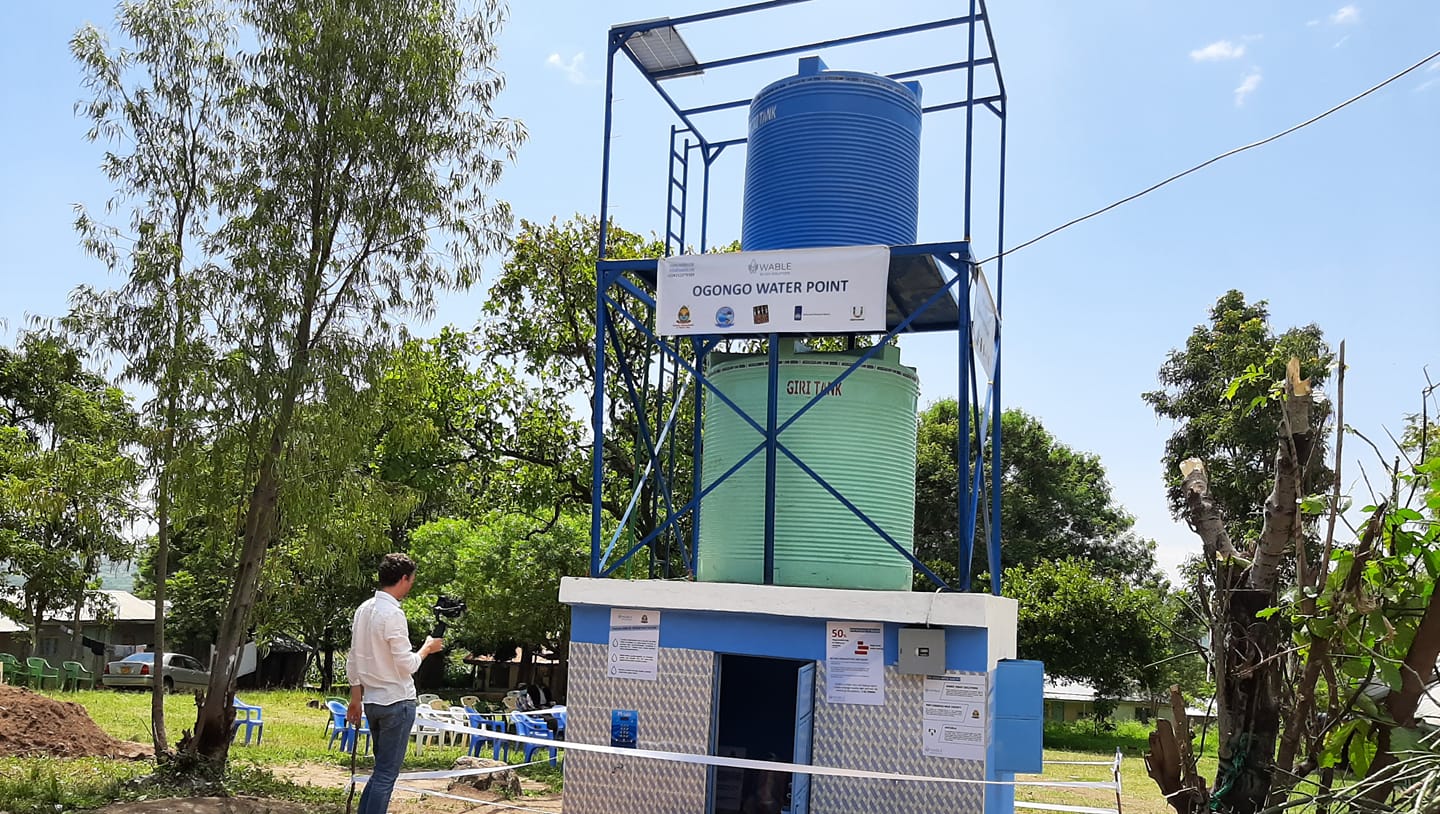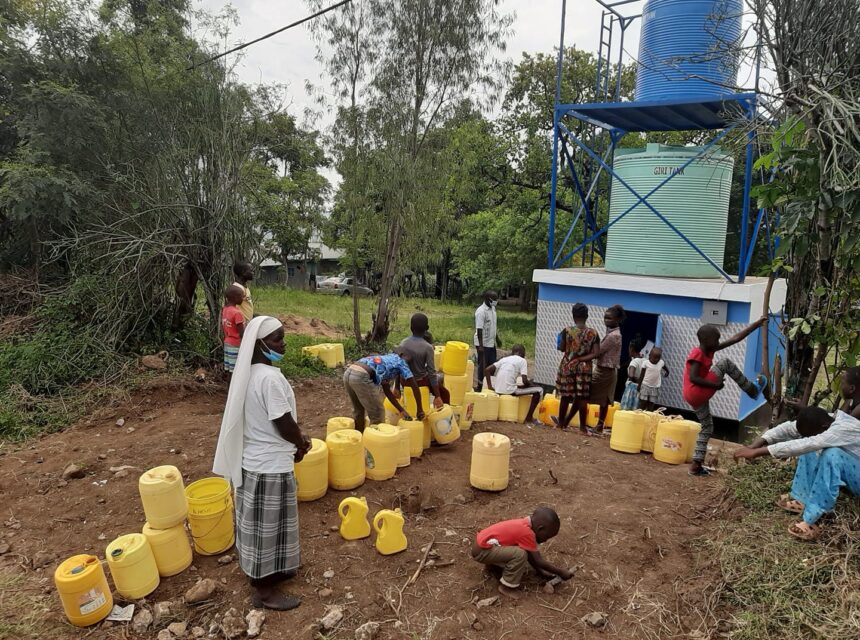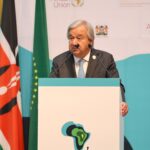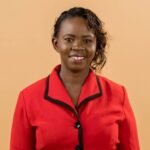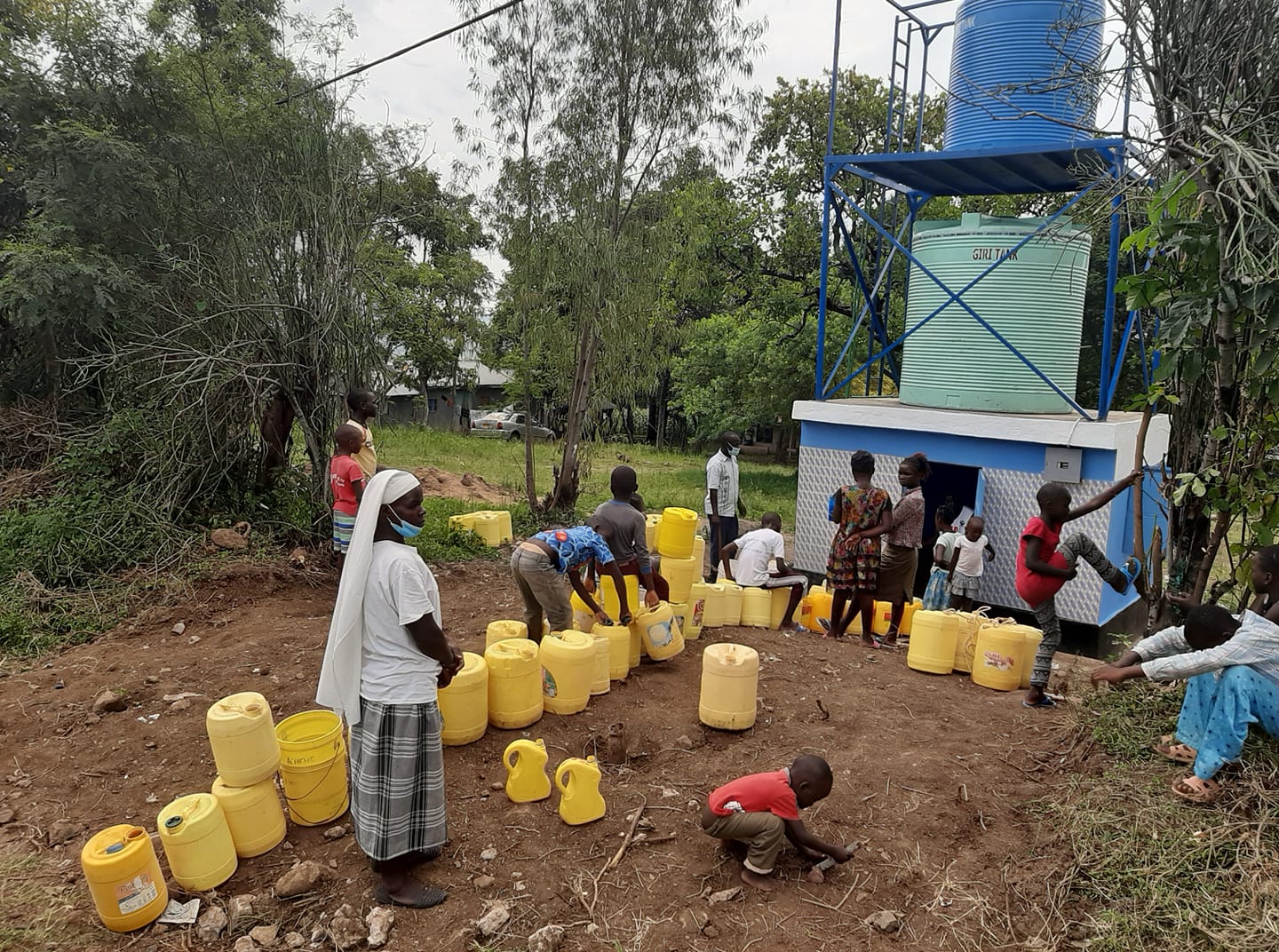
Odhiambo David | odhisdavid59@gmail.com
A new digital based purification machine that seeks to combat water contamination in the Lake Victoria region is now available.
The kit, which was on show at the Africa Climate Summit held from Sep 4-6, 2023 uses solar energy to purify dirty water. It draws raw and unclean water from the water source purifies and subdivides it into three categories, that is, filtered, mineral or raw water.
Known as Wable Maji Safi Solutions, the digital water hub is designed to address the issue of blue algae and purify the water from the lake for domestic consumption.
Mr Onyango Odak, co-founder of the hub, says the initiative represents a significant stride towards ensuring clean and safe drinking water for the communities along the shoreline. He adds that his community based organisation, Wable has partnered with Tom Mboya University to develop the equipment.
To use the machine, water is pumped from the lake or any other water source such as a borehole to the filter which removes micro plastics from the water before it goes to the main tank.
The water undergoes a number of filtration processes including active filtration, pre-filtration and active carbon which removes smell and color from the water.
It is then pumped to the tank as distilled water before it is passed through activated carbon before undergoing an ultra-filtration process through Ultraviolet Rays-Lamp.
At this point, filtered water does not need to undergo any more filtration, unlike mineral water which has to again go through activated carbon before being subjected to another purification process using reverse osmosis or Nano filtration.

“After undergoing the purification process, the water is subdivided at the water junction into three, purified, mineral and raw water. Each category of water has its own tap where water is drawn from by the users. Unclean water can also be renewed,” says a Tom Mboya University student, one of the innovators.
The student notes that the reason for the subdivision was because of the need to ensure water is fully utilized.
“The water is subdivided according to the level of purification and depending on the different levels of usage. This is to allow the residents to choose from the three qualities of water depending on their need,” notes the student.
Filtered water is used in the kitchen, mineral water is for drinking purposes while raw water, according to the student, can be used in other areas where the cleanliness of water is not prioritized.
“The raw water is not visibly unclean and can be used in car wash, mineral water is purely for drinking while filtered water can be used in the kitchen,” he says.
Working under the banner of Decentralized Drinking Water Service (DDWS), the initiative seeks to bring together the needs of people, soil, and water while employing a virtual automated machine (ATM) system that revolutionizes access to clean water, placing a strong emphasis on convenience and efficiency.
At the core of this initiative lies the Smart Water ATM, known as M-Safi ATM, which offers a unique integration with mobile money payment systems, particularly MPESA, providing a user-friendly payment method for consumers.
M-Safi ATM is a self-contained unit for the use of water dispense for up to three taps. It consists of an online system with an integrated payment system arranged into a steel box. For an easy user interface, the M-Safi ATM is provided with a display and a keypad.
“This innovation addresses critical water access issues, promotes sustainable practices, empowers communities, and fosters social and economic development,” said Onyango.
Local residents have expressed their appreciation for the initiative. Jeffkas Jakogudi, a resident of Lwanda-Nyamasare where the project was first initiated, underscored the positive impact on public health.
“This initiative has genuinely empowered the members of the Lwanda-Nyamasare community to remain healthy despite the recent cholera outbreak in Homa Bay County. Members of Lwanda-Nyamasare now have the power in their hands to create awareness among themselves,” he remarked.
Duncan Okuta, a resident from the neighboring village of Ogongo Lambwe, also commended the initiative, emphasizing the affordability of the purified water.
“At Ogongo Lambwe, we commend you for providing us with clean drinking water at an affordable price.”
The pricing strategy of the project ensures accessibility to clean water for all. Purified water is available at Ksh 2 for 20 litres, making it affordable even for the most economically challenged communities. Furthermore, mineral water is offered at Ksh. 20 for 20 litres.
The Homa Bay County Government has acknowledged the project’s potential for far-reaching positive impact. Dr. John Agili, representing the county government, said that as a government, they are firmly convinced that the project constitutes a high-impact intervention initiative in the areas of sanitation and disease control, climate change mitigation, financial inclusion, and the digital economy.
In an interview with the writer of this article, Vallery Adhiambo, Chief Operations Officer at Wable Maji Safi, mentioned their partnership with Homa Bay County to materialize the projects along all the beaches of Homa Bay.
“We are currently operational in two beach communities, Lwanda-Nyamasare and Ogongo. In collaboration with Homa Bay County and with the commitment of Governor Gladys Wanga, we intend to extend our support by installing these hubs in all 146 beaches across the county,” she added.
